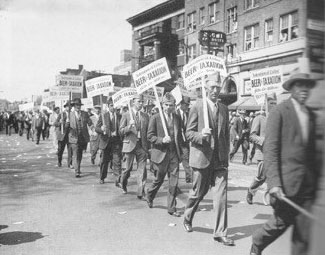
Last fall a friend of mine offered me two challenges. Without hesitation I avidly took on both. The first one is a presentation at the New Deal Conference in Fort Worth on June 8. The other is a biography of United States Senator from Texas, Morris Sheppard.
I have presented at the New Deal Conference at least three times and attended several more sessions. For years I wasn’t interested in the New Deal at all. My parents were both teenagers during the Great Depression, and you know how you are when your parents want to tell you what they did long ago at your age. Now I wish I had listened more.
I have spoken on the Agricultural Adjustment Act and the Public Works Administration and how the New Deal affected Greenville. This time I am tackling Prohibition which was not a New Deal issue. The New Deal helped fuel calls for a repeal of the 18th Amendment.
The New Deal set out to undo all the unemployment problems in America by creating jobs; what better way to create jobs was to put in place those lost by prohibiting manufacturing, sales, and transportation of intoxicating beverages. Surprisingly it was not as difficult to abolish prohibition as it had been to enact it.
When I have a paper to write or a book to put together I create a list of materials that will be helpful. Of course, those materials are books, internet sites, and films such as Ken Burns’ series on PBS. If I can find someone who has a story to tell that would work well in my project, I hunt them down. For instance, when I wrote about Prohibition here in Northeast Texas, I was told about several pits along a railroad track that were used to create man-made rocks. (That’s another story but it’s on my blog.) Later this pit was used by teen-age boys and others to procure illegal alcohol.
My husband and I went to visitation at a funeral home for one of his aunts. As we walked in he pointed out a big burly man sitting off to himself. That was one of his cohorts in buying from a bootlegger. Not knowing what I was getting into I approached the gentleman while my husband visited relatives. The guy was absolutely delightful, I learned all about the pit, what it is used for today, how much the alcohol cost, and lots of other things.
Since the twenty-first amendment repealed prohibition, those wards, towns, precincts, or counties already dry on January 16, 1920 were not affected. They went on their merry way with life as it had been for years. Hunt County, where I live, was one of those counties so I have access to a lot of stories about hiding from the law and bootleggers.
Most of my work on this paper will more academic. But somehow, I doubt if there will be the sneaky tricks that were part of the official Prohibition in the United States.
